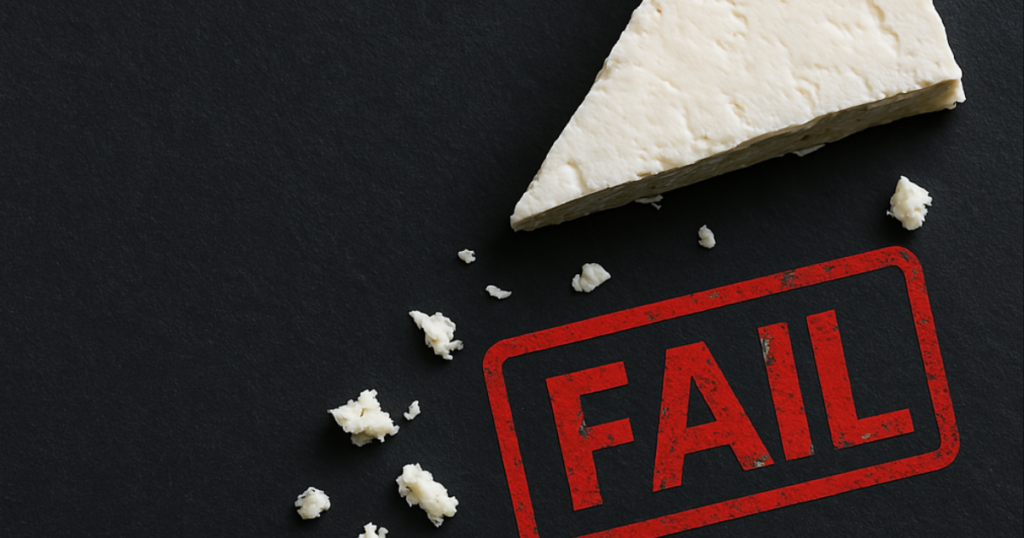Noida, India — In a troubling revelation that threatens public health and consumer trust, a recent food quality survey has exposed rampant adulteration in paneer, a dietary staple across Indian households. According to data compiled by the Food Safety Department in Noida and Greater Noida, a staggering 83% of paneer samples tested between April 2024 and March 2025 have failed to meet established food quality standards, with 40% deemed unsafe for consumption.
Dairy Under Siege: Paneer, Milk, Khoya Top the Adulteration List
Assistant Commissioner (Food), Sarvesh Kumar Mishra, revealed that during 2,421 inspections and 520 raids conducted in the past year, paneer emerged as the most adulterated food item tested.
“Out of the 122 paneer samples collected, 83 reports have come in. Of these, 40% were unsafe and the rest substandard. Harmful chemicals and unidentified liquid substances were found in several batches,” Mishra told
The numbers only get grimmer. Here’s a breakdown of adulteration in other key dairy items:
- Milk: 19 out of 43 samples (44%) failed quality tests
- Khoya: 46% failure rate
- Milk-based sweets: 45% failed quality standards
- Ghee: 38% failure rate
- Butter: The only product that passed all quality checks
Legal Action and Penalties: Paneer Tops the List Again
The crackdown on food adulteration has led to legal consequences:
- 33 prosecutions related to paneer led to Rs 52.7 lakh in penalties
- Milk triggered 27 prosecutions, with Rs 36 lakh in fines
- Ghee saw 7 prosecutions totaling Rs 5.25 lakh
- Khoya accounted for 18 prosecutions and Rs 5.4 lakh in penalties
In total, penalties worth Rs 2.48 crore were imposed across various categories of food products over the last year.
What’s at Stake: Public Health and Food Integrity
The findings come at a critical time, as urban consumers increasingly rely on packaged and loose dairy products from local vendors. Experts warn that the consumption of such adulterated paneer and milk can lead to digestive issues, chemical poisoning, and long-term health complications.
The Food Department has assured continued vigilance and announced plans for randomized, tech-enabled sampling to crack down on repeated offenders and enhance food traceability.
A Wake-Up Call for the NCR Region
This alarming report is not just a statistical red flag—it’s a public health emergency. With paneer failing food safety norms at such high levels, the need for stricter enforcement, public awareness, and transparent supply chains has never been more urgent.
Consumers are urged to verify the source of dairy products and report any suspicious quality issues through government helplines and official apps.


